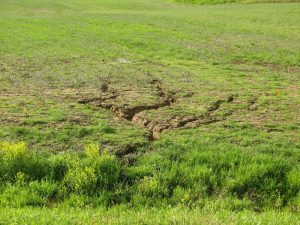Prairie Rivers Network and other members of the Mississippi River Collaborative are keeping an eye on Minnesota’s plan to develop an agricultural water quality certification program. The program details are still being decided, but it appears it will be a voluntary program that certifies farmers are meeting water quality standards for their pollution discharges. In order to become certified, farmers will likely have to achieve a minimum conservation score and/or install conservation practices that modelers predict will achieve acceptable pollution reductions.
Clearly something needs to be done to reduce pollution from farms, but we are questioning yet another voluntary program. In our press release, we outline some of the downsides of such a program. The press release was issued after we sent the Minnesota Commissioner of Agriculture a letter outlining eleven principles for increasing the chance of the certification program being successful.

Any state program focused on significantly reducing agricultural pollution needs to involve widespread adoption of conservation practices with proven water quality benefits. The voluntary, piecemeal approach has not kept the Cornbelt’s rivers clean.







